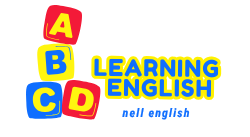How to Learn English Quickly and Effectively
Introduction
English is often considered the global language of communication, playing a crucial role in education, business, and travel. Whether you’re looking to advance your career, study abroad, or simply connect with people from different cultures, improving your English proficiency can open doors to countless opportunities.
If you’re ready to improve your English skills but aren’t sure where to start, you’ve come to the right place. This guide will equip you with practical tips for learning English quickly and effectively without feeling overwhelmed. From setting realistic goals to incorporating English into your daily life, here’s everything you need to know to kick-start your language learning journey.
Setting Realistic Goals for Language Learning
When it comes to learning English—or any new language—setting clear and achievable goals is crucial. Unrealistic expectations like speaking fluently in a month can lead to frustration, while no goals at all can result in slow or unfocused progress.
Here’s how you can set effective goals for your English learning:
- Be Specific: Instead of saying “I want to improve my English,” identify exactly what you want to achieve. For example, “Learn 500 new vocabulary words by next month” or “Improve my pronunciation for phone conversations.”
- Break it Down: Large goals can feel daunting. Break them into smaller, manageable tasks. For example, rather than aiming to “master grammar,” focus on learning a specific tense like the present perfect.
- Set a Timeline: Deadlines create accountability. Establish timeframes for each goal, such as dedicating three weeks to mastering basic conversational phrases.
- Celebrate Progress: Reward yourself for meeting milestones, whether it’s successfully completing a speaking exercise or finishing a vocabulary list.
Immersive Learning and Its Benefits
Immersive learning is one of the fastest ways to pick up a new language. It involves surrounding yourself with the language in real-life contexts, even before you fully understand it.
Why Immersion Works
Immersion replicates how children naturally learn their first language—by hearing and using it frequently. This consistent exposure helps you develop better listening skills, pick up vocabulary faster, and understand grammar instinctively.
Immersive Practices You Can Try:
- Watch English Content: Binge-watch TV shows, movies, or YouTube videos in English. Turn on subtitles for additional support.
- Listen to Podcasts: Download English podcasts or audiobooks during your commute or workouts. Focus on episodes tailored to English learners, such as “BBC Learning English.”
- Participate in Language Exchanges: Join a language exchange group online or in your local area where you can practice English and help someone practice your native language.
- Travel Abroad (if possible): Spending time in an English-speaking country forces you to interact in English daily, accelerating your learning.
Even if you can’t travel, try to create a mini-English-speaking environment at home. Adjust your smartphone and social media language settings to English, and follow English-language content creators.
Utilizing Technology and Online Resources
The digital era has revolutionized language learning, providing countless resources right at your fingertips. Using technology smartly can add structure and interactivity to your learning process.
Apps and Tools to Explore:
- Language Learning Apps
Duolingo, Babbel, and Memrise are popular for building vocabulary, practicing grammar, and learning through gamification.
- Grammar and Writing Tools
Platforms like Grammarly and ProWritingAid can help correct your writing while explaining the rules behind common errors.
- Interactive Platforms
Websites like iTalki or Preply connect you with native speakers and tutors for real-time conversations.
Why It Works
These tools allow flexibility for busy schedules, adapt to personal learning speeds, and combine structured lessons with fun activities—making the process less daunting.
The Power of Practice and Consistency
Consistency is the backbone of learning any language. Even a few minutes of daily practice is more effective than hours of study once a week.
Best Practices for Consistent Learning:
- Practice Daily, Even in Small Bursts
Dedicate 10–15 minutes each day to reading, writing, listening, or speaking in English.
- Flashcards for Vocabulary
Create English flashcards for frequently used words, using apps like Anki or Quizlet to review them daily.
- Keep a Language Journal
Write short paragraphs about your daily activities, emotions, or upcoming plans in English to strengthen your writing skills over time.
Small, consistent efforts are the secret to gradual but sustainable improvements.
Incorporating English Into Daily Life
By weaving English into your everyday routine, you turn phrases and conversations into second nature. No extra time required!
Easy Ways to Use English Daily:
- Start Your Day in English
Listen to an English news bulletin or quick podcast while making your breakfast.
- Bring English into Hobbies
Love cooking? Follow English recipes. Interested in sports? Watch commentary in English.
- Engage in Mini-Conversations
Greet colleagues or ask simple questions in English. If you’re shopping, practice small talk with vendors.
- Think in English
Narrate your thoughts to yourself in English, whether you’re planning your schedule or deciding what to eat for lunch.
The more natural English becomes in your routine, the easier it will be to progress.
Overcoming Common Challenges Faced by English Learners
Every learner faces hurdles, but it’s important to address them early and stay motivated.
Challenge 1: Fear of Making Mistakes
Solution: Mistakes are part of learning. Focus on improvement, not perfection. Practicing with language partners or apps provides a safe space to make errors.
Challenge 2: Limited Time
Solution: Use downtime effectively. Turn your everyday routines—like commuting or exercising—into opportunities for language exposure.
Challenge 3: Difficulty Retaining Vocabulary
Solution: Use words in context. Create sentences or stories incorporating new vocabulary instead of rote memorization.
Remember, every challenge is temporary. The more effort you put in, the easier it gets!
Keep Moving Forward with Confidence
Learning English quickly and effectively isn’t just about formal lessons—it’s about immersing yourself in the language and practicing with consistency. By setting achievable goals, using immersive techniques, leveraging technology, and incorporating English into your daily life, you’ll find yourself improving steadily.
Every small step you take builds upon the last. Be patient with yourself and celebrate your progress, no matter how minor it seems.
If you’re looking for even more personalized guidance and advanced tools, start by exploring comprehensive language resources online. Your English fluency is just around the corner—begin your new chapter today!

